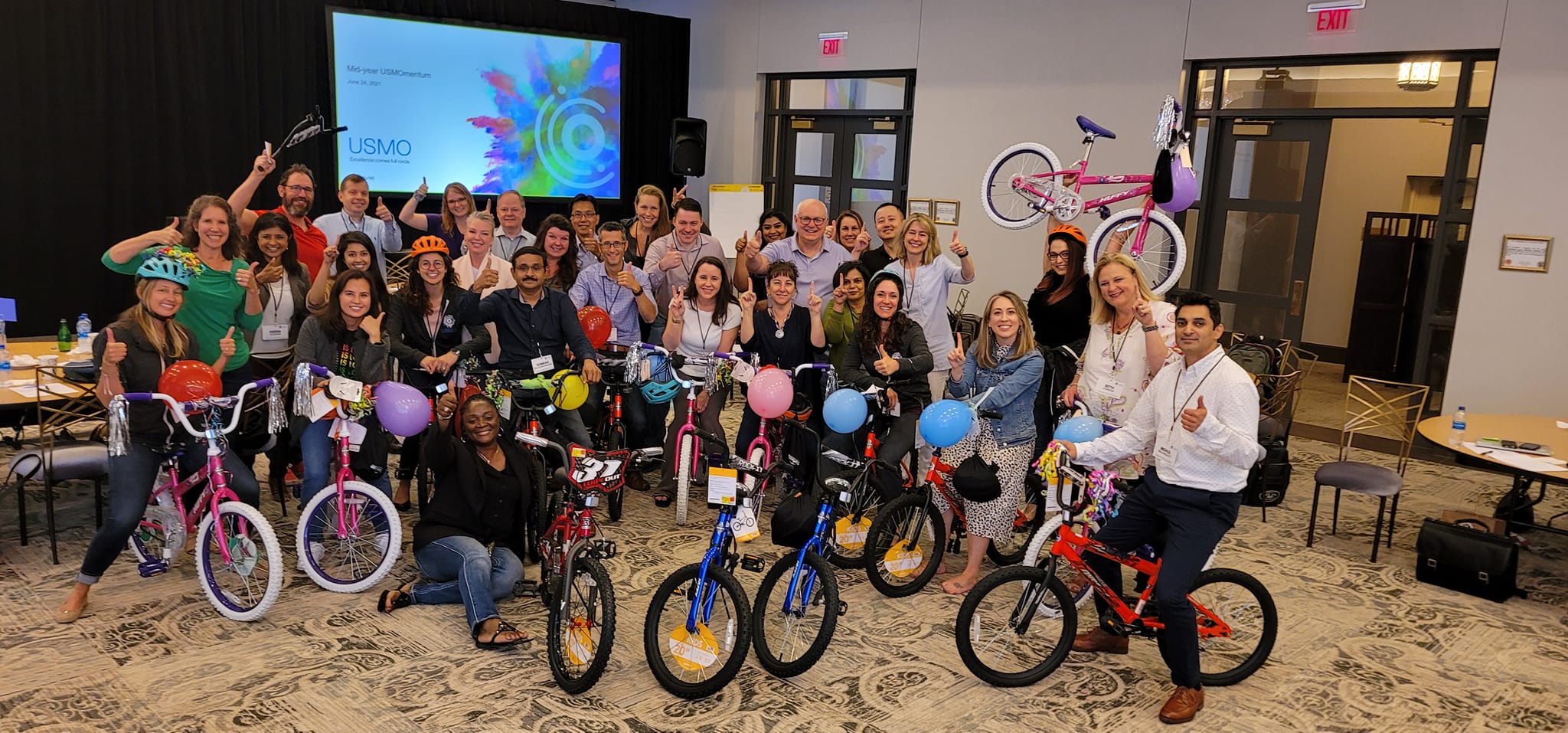How to Avoid the Great Resignation
If you read or watch the news, you’ve probably heard the term “The Great Resignation” recently. The pandemic has led to many people reflecting on their lives and reassessing what’s important to them. They are evaluating what they want from life, as well as how their job and the work they do fit into that vision.
This is different from the normal turnover that happens when employees feel demotivated or disconnected from their workplace. Rather, this is a phenomenon happening across all industries — both in large businesses and small. Workers are taking a hard look at the level of support they’ve received through all of the uncertainty of the pandemic.
Did the employer support their health and make their wellbeing a priority? Were they given the flexibility to manage stress and shifting situations? How were the financial aspects of changing work hours handled? In essence, did their employer make them feel like a valued person?
For many who are realizing that the answer is “No,” they are likely proactively searching for something better.
In fact, this isn’t something you can shrug off. A recent survey found that a staggering 41% of workers are considering either quitting their jobs or changing professions this year.
According to the U.S. Department of Labor, more than four million people quit their jobs in April 2021. Around 650,000 of those who quit were retail workers, meaning this isn’t just a minimum wage job problem. This is impacting people across the spectrum of expertise and pay scales.
To get to the root cause, Rober Glazer, founder and CEO of Acceleration Partners, sat down with Rich Rininsland, host of our TeamBuilding Saves the World podcast to talk about The Great Resignation. They discussed what this means for businesses and how companies can reconnect with workers to keep them wanting to stay.
“Last year, we had a six-month period where no one left or switched their job. There was this pent-up demand where there would have been natural turnover. And then, once liquidity came back to the job market, there was a lot of turnover. I think [the numbers] have exceeded everyone’s expectations,” Glazer says.
Why People Are Saying: “I Quit!”
There are several reasons why people are deciding to see if the grass is greener in other pastures. Some of them are similar to typical reasons for turnover in any normal year, but some are unique to the times we live in.
 Low pay. Many are realizing that minimum wage just doesn’t pay the bills. This is especially true in lower-end jobs. It costs workers more in health, stress, and anxiety than it pays in wages, so they are seeking opportunities for work that values them.
Low pay. Many are realizing that minimum wage just doesn’t pay the bills. This is especially true in lower-end jobs. It costs workers more in health, stress, and anxiety than it pays in wages, so they are seeking opportunities for work that values them.- Little or no sick leave. Time off has long been a benefit that employees value. However, it has become a greater consideration when many are facing situations where they or a loved one catch COVID-19 and need to quarantine, or are just too sick to work. For those in jobs where missing work means not getting paid, they may be assessing how much value that job brings to their life.
- Concerns about personal health. Companies mandating returns to the office should keep in mind and find a solution for workers who simply are not comfortable with being back in a public environment for any length of time. These workers, no matter how much they might like their job or company, may need to decide if they would prefer to leave the company or work with their manager to identify alternative solutions, when possible.
- Finding a better fit. For some, the pandemic has shed a light on the actual day-to-day work, what is important in life, and what is causing unnecessary stress. For these workers, it might not be a matter of seeking better pay or a different company, but just realizing they would prefer to do a different type of work.
- The desire to work remotely. Some workers are anxious to get back to the office. But for many, working from home has been a bit of a revelation. This is especially true for younger workers or those hired during the pandemic. They might not know anything other than remote work with your company. Deciding to leave and find a company that will allow them to continue to work remotely, versus staying and being forced into an office setting, could be a “no brainer” for them in terms of staying or going.
- The need to reduce stress. Workers who have public-facing roles may be feeling burned out after being on the front lines of the business for more than 18 months during the pandemic — for example, jobs in retail, healthcare, or customer service representatives who have been trying to address and resolve incoming questions or concerns. Some people in these roles may feel that they need a break from their current situation.
- A shift in priorities. Employees who have spent a significant amount of time away from their personal lives and family in the past months may be examining priorities. They are looking for work that will allow them to continue to spend quality time with their loved ones, even after the pandemic is over. They are not interested in continuing with the daily grind.
- Long commutes. Finally, many people realized just how much time they had been losing daily, commuting to and from the office. Gaining back those hours as either productive or family time is something many don’t want to give up. When faced with the choice, they will be looking for work that will let them continue to make the most out of every hour of the day.
Countering The Great Resignation
To counter The Great Resignation, we recommend focusing on the employee experience which goes far beyond just offering flexible hours or remote workspaces. It comes down to how your employees feel about the way you are treating them — if they are seen as individuals and people, or just placeholders to churn out more work.
A supportive and positive work environment will lead to a far greater commitment to the organization and its mission. If employees feel connected and valued, they are more likely to seek ways to resolve their issues within the company, rather than start looking elsewhere. This is not just limited to offering better wages and a strong benefits package but could also include opportunities for training and advancement, and a company-wide commitment to safety and equality, to name a few.
It can be easy to put company culture or morale-building on the proverbial back burner when faced with the challenges COVID-19 brought to the table and continues to bring. But these are the factors that can make a difference between an employee feeling comfortable to express concerns they have to find a solution, or sending out resumes to find the next opportunity.
Team building activities can help to bolster the overall employee experience and connect teams again, whether they are in the next cubicle over or across the country. From feel-good fun to wellness or charitable activities, team building can help cement a strong team culture.
 Show your employees that you care about them as whole people, not just when they are on the clock. You can do this by helping them prioritize family time with family-friendly events. When the holidays come along, invite everyone — the parents and the kids — to get creative with Pumpkin Carving or decorating Gingerbread Houses. Afterward, gather everyone Around The (Virtual) Campfire for songs, stories, and s’mores.
Show your employees that you care about them as whole people, not just when they are on the clock. You can do this by helping them prioritize family time with family-friendly events. When the holidays come along, invite everyone — the parents and the kids — to get creative with Pumpkin Carving or decorating Gingerbread Houses. Afterward, gather everyone Around The (Virtual) Campfire for songs, stories, and s’mores.
In addition to having fun with creative holiday activities, your employees will also appreciate your commitment to their overall wellbeing and mental fitness. You can achieve this by promoting a healthy lifestyle among your employees by offering wellness opportunities. You could even incorporate wellness into a team event with an activity like Laughter Yoga.
Another great way to engage employees and build stronger bonds among team members is by dedicating time to give back as a team. Rally your employees behind a charitable cause and support their efforts to make a positive impact on the world.
Incorporate a meaningful activity like The Charity Bike Build into your next event to get your entire team working together to put a smile on a child’s face with a handmade bicycle. For companies that are interested in making giving back a priority, TeamBonding CSR can help you meet your social impact goals, from a single event to DIY kits, to managing the corporate volunteering program for your business. The customized, nonprofit-aligned programs offer a unique fusion of team building and social responsibility.
For more advice on how your business can mitigate the effects of The Great Resignation, check out the latest TeamBuilding Saves the World podcast. You may not realize it but some of your most valuable employees could be weighing their options right now. Don’t wait until it’s too late and their decision has already been made; take steps to make your team feel appreciated and valued today to ensure they stay tomorrow.
Get more insights in our newsletter:
* every subscription supports charity!
Plays well with these activities.


 Unlock exclusive resources for better teams. Every subscription supports charity!
Unlock exclusive resources for better teams. Every subscription supports charity!
Create Your Free Account
Get exclusive access to new programs from the TeamBonding Lab, save your favorite ideas, and track your upcoming events.
Already have an account? Login









